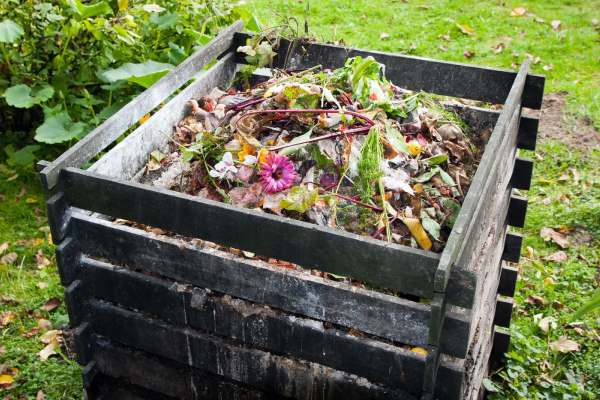Composting is a natural way of recycling organic matter, such as leaves and food scraps, into fertilizer that can provide nutrition to soil and plants. The process involves decomposing organic materials into humus-like materials which is great for plants’ overall development.
Gardeners and even non-gardeners have practiced composting for centuries. If you haven’t tried composting yet, you’re probably missing out on many benefits of making compost for your garden. Read below to find out the amazing benefits of composting and their most common types. Also, learn how to make compost at home and what composting techniques you can use and prepare the best compost for your gardening purposes.
What is composting?
Composting is a natural decomposition process of organic matter like plants and food waste. This process is executed by fungi, bacteria, worms, and more microorganisms with the help of oxygen under controlled conditions.
You can also call compost an organic matter that can be added to the soil to help your plants get enough nutrients and develop their overall health. You can buy compost manure from the market or prepare it yourself easily with organic waste materials from your kitchen and garden. It is a good thing to prepare your compost for your home using food waste instead of throwing it into the trash where it cannot be used for anything.
Also, Read How to Grow and Care for Zinnias, a Flower That Blooms All Summer!
Backyard Composting
Making compost is a sustainable process that allows you to cut back on food waste while turning it into something valuable for your plants. However, composting has a lot of misconceptions, despite millions of people have already been practicing it. Some people complain about the process of composting being too smelly, messy, and complicated.
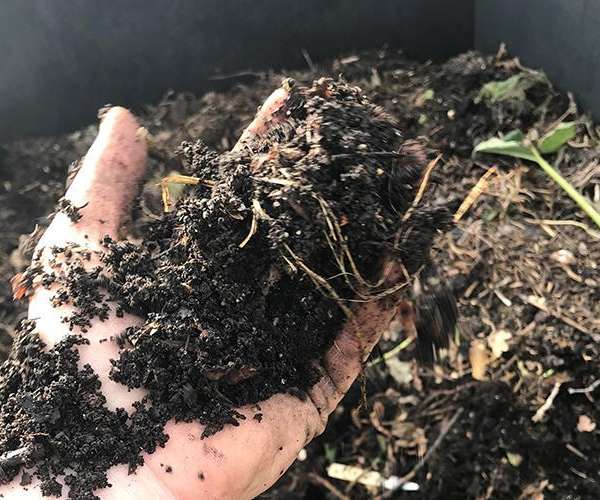
If you try to compost using the wrong method, that might apply to you as well. It is essential to learn how to make your compost the right way by simply layering organic materials including food waste and some soil so that it will turn into humus. The whole point is composting is feasible and backyard composting is even easier.
How to Make Compost: Step By Step
Here are the steps that you have to go through to make your garden compost:
-
Choose a Site
The first thing you have to do is a suitable site for composting. You should pick a location that is slightly hidden and the spot should have great access to good airflow, water, partial share during the summer, and full sun in the winter.
2. Lay Twigs or Stray
After you have chosen the perfect spot, it is essential to lay some twigs or straw on the pile or bin. Keep them a few inches deep as that will allow the pile to have proper airflow and drainage.
3. Add Compost Ingredients
The next step is to add your compost ingredients in layers. Alternate between the dry and moist components. Moist components are tea bags, food waste, and plant waste while ashes, sawdust, and straw are considered to be dry components.
4. Add Manure
While this point is not mandatory, adding manure could be a source of nitrogen to activate and speed up the process of composting.
5. Keep Moist
Ensure to keep the compost pile moist by watering it occasionally but do not overdo it.
6. Cover Your Pile
Next, we will cover the compost pile as it will help regain moisture and heat which is essential for making a good compost. Covering will also prevent it from being overly soaked by rain.
7. Turn Your Compost Pile
Give your compost pile a turn every few weeks using a pitchfork as it generates oxygen in your compost pile. This process can help air reach your compost and increase the composting process.
What to Compost?
You can not post whatever you want to. It is necessary to identify what items are compostable and what are not. Some biodegradable waste items are not good for composting no what how degradable they are. Note the following:
Good for composting:
- Pine needles
- Sawdust
- Dried leaves
- Dried grass
- Straw
- Eggshells
- Shredded cardboard and paper
- Chopped wood pruning
- Citrus rinds
- Coffee grounds
- Grass and shrub clippings
- Fruit waste
- Teabags
- Coffee filters
- Young weeds
- Wilted flowers
- Vegetable waste
Not suitable for composting:
- Animal products like fish, bones, and meat
- Dairy products
- Sawdust from treated woods
- Human waste
- Weeds that bear seeds such as ivy, oxalis bulbs, burr clover, and Bermuda
grass
Types of Composting
Before you get into composting, there are three types of it namely, hot composting, cold
composting and vermiculture or worm composting.
-
Hot Composting
This is normally the method chosen by serious gardeners. Hot composting is faster and you can get the compost in one to three months, mostly in warm weather. Hot composting needs four components, namely, air, water, nitrogen, and carbon. These four necessities become food to decomposers that could speed up the process of decaying. In summer or fall, there are lots of garden wastes so you can surely have a second batch of compost while another one is already on the way.
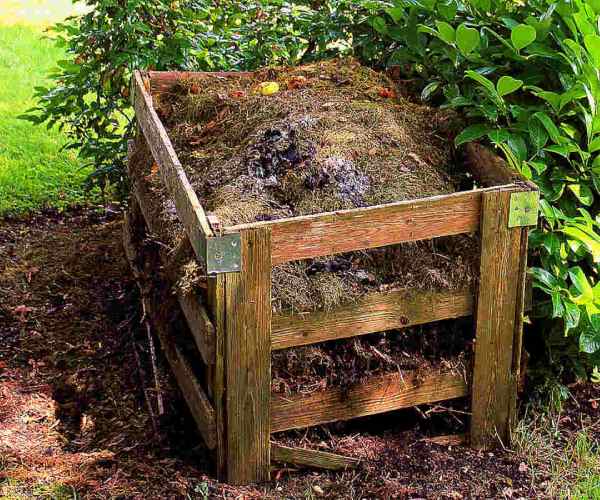
2. Cold Composting
Cold Composting is the simplest of all three methods. In this method, you are just collecting biodegradable waste that you can pile in a bin or a pit and wait for it to naturally decompose in about a year or two.
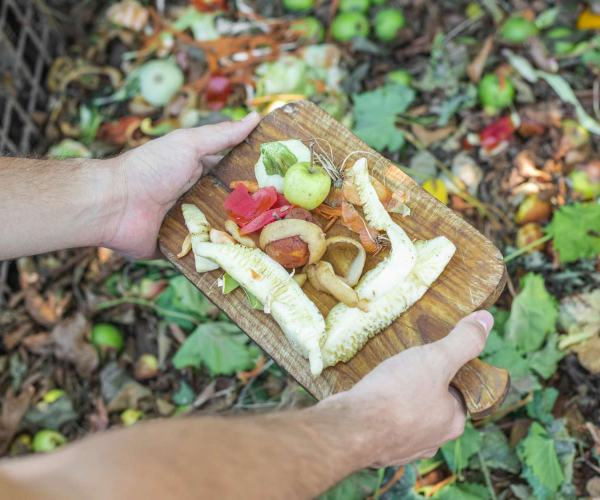
3. Vermiculture or Worm Composting
When you pile your food scraps and other biodegradable wastes together, worms slowly eat them, releasing more worm castings which are rich in nitrogen.
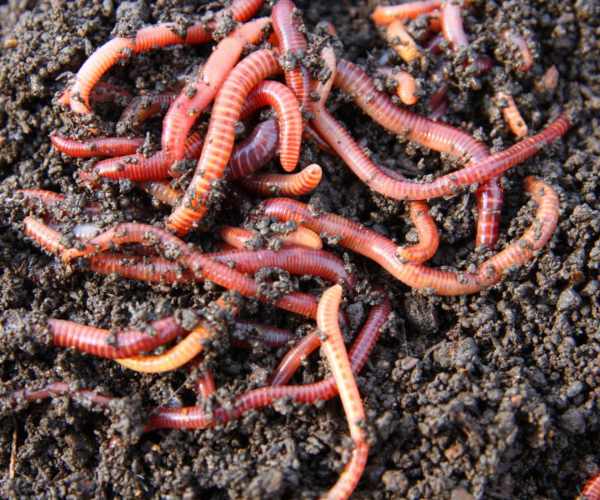
That being said, these nitrogen-rich castings aren’t just produced by any worm. You would also require redworms or “red wrigglers” for this. Redworms are normally cheap and you can easily purchase them through your local garden supplier or even online.
Benefits of Composting
Backyard composting has numerous benefits. Along with helping conserve the environment, it also saves a lot of money and resources that you would otherwise spend on buying fertilizers.
-
Utilizes Waste to Reduce It
Composting allows people to utilize plant waste, food and kitchen waste, leaves, garden clippings, and other biodegradable waste that we throw otherwise. Along with that, composting could also save you money for landfill fees. If you are questioning yourself if you should practice making your compost, then do it. Not only it will save you money, but it will also make a great soil enricher for your garden. It is super easy to make and will reduce your waste greatly. The best thing about composting is that you can turn trash into treasure, keeping trash off the landfills and, in turn, reducing your carbon footprint.
2. Improves Soil Health
Compost is a great tool to replenish the fertility of the soil without making use of chemical fertilizers. Fertilizers help to improve the soil health and minimize plant diseases and pests. Natural compost will also eliminate the need to use chemical-based fertilizers.
Compost features nutrients that plants take for them to grow to their best potential, like potassium, nitrogen, and phosphorus. Adding compost to your garden soil will supply it with micronutrients like iron, iodine, cobalt, boron, copper, zinc, molybdenum, and manganese.
Not only that but compost will also improve soil structure and the capacity of soil to hold water, eventually increasing erosion control and soil permeability. Moreover, composting soil also helps in reforestation and restoration of wetlands and plant and animal habitats. It treats the soil that is contaminated with toxic stuff.
3. Protects the Environment
Composting helps to protect the environment by reducing our need to use chemical-based fertilizers and soil conditioners. Composted soils also increase necessary microbes and nutrients which can eventually increase plant health. Because it retains water, compost can also prevent soil erosion.
The environment is being greatly benefitted by our composting practice since these organic resources are being recycled. Not just composting increases the organic matter in the soil but it also promotes healthy root structure in plants. They increase earthworms and other necessary microorganisms in the soil which will play a big part in balancing the soil ecosystem.
4. Easy for Any Gardener
There are different ways of creating compost and that is why preparing it is so convenient. One best methods is to utilize worms which can yield worm castings that are full of valuable nutrients. This practice is known as vermiculture. While making your compost, you can also improve your ornamental or vegetable garden, improve your lawn, and propagate your plants. Altogether, composting is an essential part of a great gardening experience.
Extra tips for composting
As mentioned above there are several types and methods of composting so you can ultimately decide the best for your garden. Always make sure that the method will be in favor of your time, energy, and space. Choose a composting method that will give you the amount of compost when you need it. If provided the right amount of moisture, good nutrient balance, favorable temperature, and good aeration, composting will be very easy for beginners as well.
If your space is wider, you could keep your pit bin on a piece of soil that you’re thinking of turning into a flower or a vegetable bed. The soil below will become rich since the nutrients coming out of the bin will trickle down after numerous watering seasons.
Composting FAQs
Q: How long does composting take?
A: Decomposition will be complete anywhere from two weeks to two years depending on the materials used, the size of the pile, and how often it is turned. Compost is ready when it has cooled, turned a rich brown color, and has decomposed into small soil-like particles.
Q: How long does it take to compost a paper?
A: The time it takes for shredded paper to compost can vary depending on factors such as the type of paper, environmental conditions, and composting methods used. Generally, it can take anywhere from a few months to over a year for shredded paper to break down completely.
Q: How does composting help the environment?
A: Conserves water and reduces water use by helping soils retain moisture. Helps prevent soil erosion by reducing soil compaction and runoff. Reduces reliance on chemical fertilizers and pesticides.
Also, Read Should You Add Banana Water and Eggshells to Your Plants? Experts Reveal!
